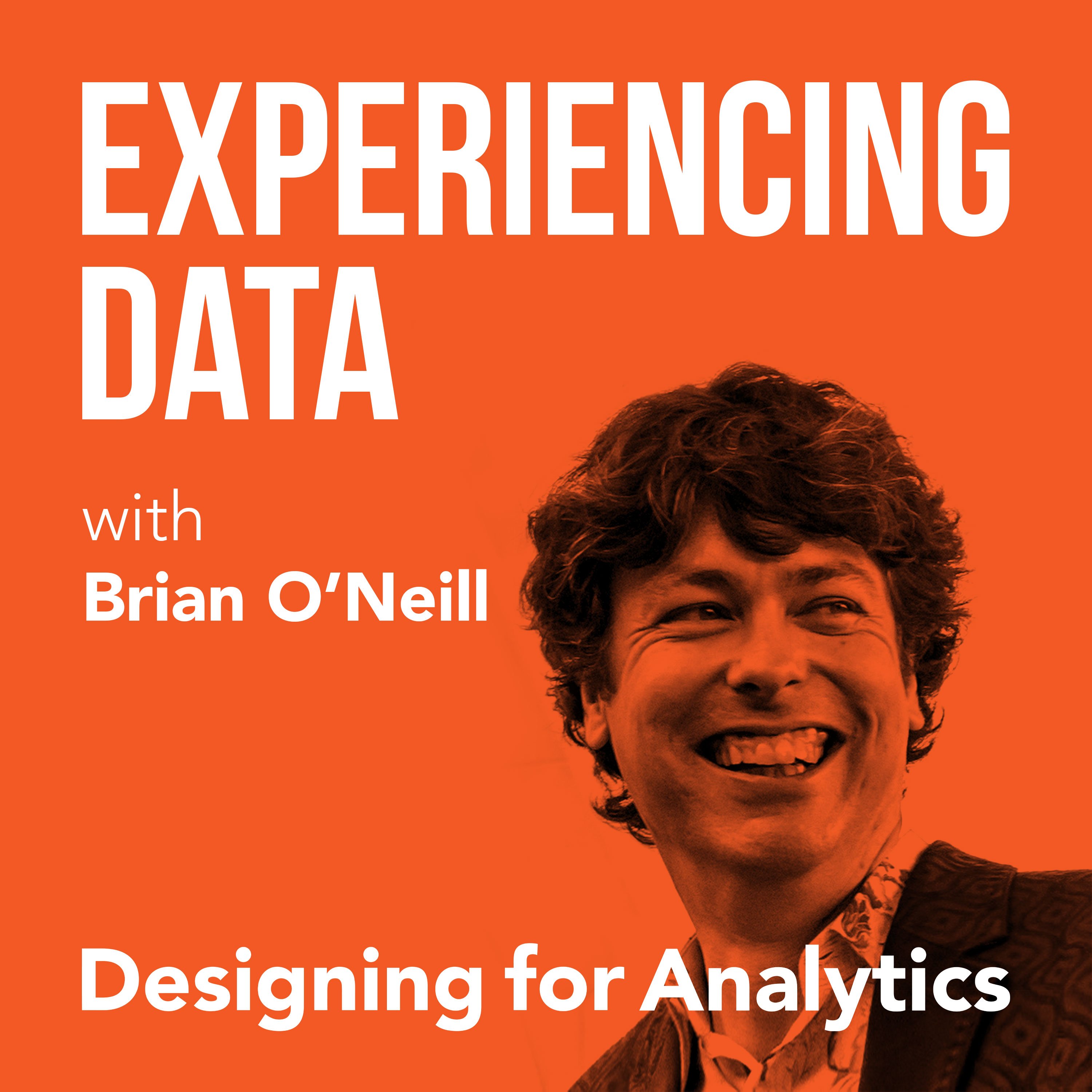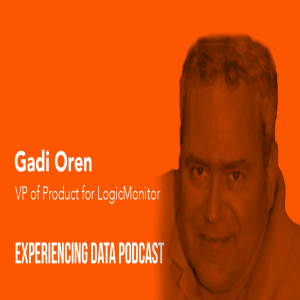

141.4K
Downloads
173
Episodes
Is the value of your enterprise analytics SAAS or AI product not obvious through it’s UI/UX? Got the data and ML models right...but user adoption of your dashboards and UI isn’t what you hoped it would be? While it is easier than ever to create AI and analytics solutions from a technology perspective, do you find as a founder or product leader that getting users to use and buyers to buy seems harder than it should be? If you lead an internal enterprise data team, have you heard that a ”data product” approach can help—but you’re concerned it’s all hype? My name is Brian T. O’Neill, and on Experiencing Data—one of the top 2% of podcasts in the world—I share the stories of leaders who are leveraging product and UX design to make SAAS analytics, AI applications, and internal data products indispensable to their customers. After all, you can’t create business value with data if the humans in the loop can’t or won’t use your solutions. Every 2 weeks, I release interviews with experts and impressive people I’ve met who are doing interesting work at the intersection of enterprise software product management, UX design, AI and analytics—work that you need to hear about and from whom I hope you can borrow strategies. I also occasionally record solo episodes on applying UI/UX design strategies to data products—so you and your team can unlock financial value by making your users’ and customers’ lives better. Hashtag: #ExperiencingData. JOIN MY INSIGHTS LIST FOR 1-PAGE EPISODE SUMMARIES, TRANSCRIPTS, AND FREE UX STRATEGY TIPS https://designingforanalytics.com/ed ABOUT THE HOST, BRIAN T. O’NEILL: https://designingforanalytics.com/bio/
Episodes

Tuesday Apr 23, 2019
Tuesday Apr 23, 2019
 My guest today is Gadi Oren, the VP of Product for LogicMonitor. Gadi is responsible for the company’s strategic vision and product initiatives. Previously, Gadi was the CEO and Co-Founder of ITculate, where he was responsible for developing world-class technology and product that created contextual monitoring by discovering and leveraging application topology. Gadi previously served as the CTO and Co-founder of Cloudscope and he has a management degree from Sloan MIT.
My guest today is Gadi Oren, the VP of Product for LogicMonitor. Gadi is responsible for the company’s strategic vision and product initiatives. Previously, Gadi was the CEO and Co-Founder of ITculate, where he was responsible for developing world-class technology and product that created contextual monitoring by discovering and leveraging application topology. Gadi previously served as the CTO and Co-founder of Cloudscope and he has a management degree from Sloan MIT.
Today we are going to talk with Gadi about analytics in the context of monitoring applications. This was a fun chat as Gadi and I have both worked on several applications in this space, and it was great to hear how Gadi is habitually integrating customers into his product development process. You’re also going to hear Gadi’s interesting way of framing declarative analytics as casting “opinions,” which I thought was really interesting from a UX standpoint. We also discussed:
- How to define what is “normal” for an environment being monitored and when to be concerned about variations.
- Gadi’s KPI for his team regarding customer interaction and why it is important.
- What kind of data is needed for effective prototypes
- How to approach design/prototyping for new vs. existing products
- Mistakes that product owners make falling in love with early prototypes
- Interpreting common customer signals that may identify a latent problem needing to be solved in the application
Resources and Links:
LogicMonitor
Twitter: @gadioren
LinkedIn: Gadi Oren
Quotes from Today’s Episode
“The barrier of replacing software goes down. Bad software will go out and better software will come in. If it’s easier to use, you will actually win in the marketplace because of that. It’s not a secondary aspect.” – Gadi Oren
“…ultimately, [not talking to customers] is going to take you away from understanding what’s going on and you’ll be operating on interpolating from information you know instead of listening to the customer.” – Gadi Oren
“Providing the data or the evidence for the conclusion is a way not to black box everything. You’re providing the human with the relevant analysis and evidence that went into the conclusion and hope if that was modeled on their behavior, then you’re modeling the system around what they would have done. You’re basically just replacing human work with computer work.” — Brian O’Neill
“What I found in my career and experience with clients is that sometimes if they can’t get it perfect, they’re worried about doing anything at all. I like this idea of [software analytics] casting an opinion.” — Brian O’Neill
“LogicMonitor’s mission is to provide a monitoring solution that just works, that’s simple enough to just go in, install it quickly, and get coverage on everything you need so that you as a company can focus on what you really care about, which is your business.” — Gadi Oren
No comments yet. Be the first to say something!